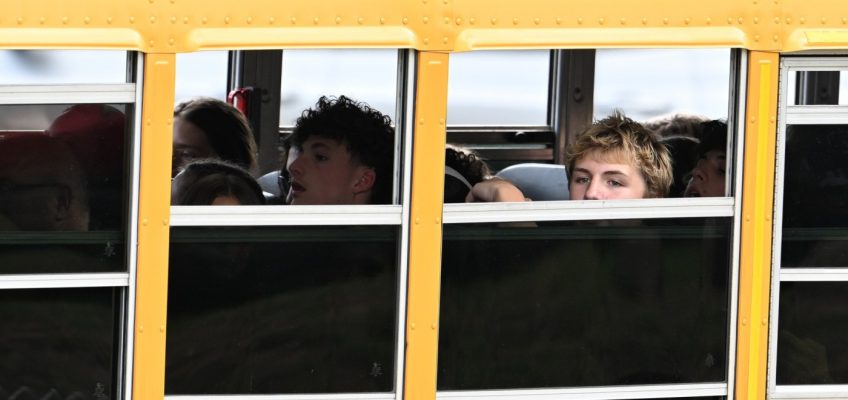In the wake of the Evergreen High School shooting, extremism experts are raising the alarm about how teenagers are being radicalized online in spaces that glorify violence.
They, along with mental health experts, recommend parents monitor their kids’ online activity as well as learn the language that is often used in such spaces so that they know what children are being exposed to.
“What we see online happening with our children is desensitization of killing, of death, of what it means to take a life,” said Susan Payne, a national school safety expert and founder of Colorado’s Safe2Tell reporting system. “…We have to understand warning signs and indicators really are changing as we go more into a digital age.”
Here are five steps that experts said parents can take to help keep their kids safe:
Don’t rush to give a child a social media account
Mental health experts do not recommend that children have sole access to social media until they become adolescents because their brain development isn’t ready to navigate such content without the supervision of an adult.
There isn’t a set age that mental health experts recommend a child be given their own account, as each individual will be ready at a different time, said Jessica Hawks, a child and adolescent psychologist at Children’s Hospital Colorado.
Monitor and limit a child’s social media activity
Parents should monitor their child’s social media activity once they are given their own accounts. This includes being able to log in and see who their kids are talking to and what’s showing up on their social feeds, Hawks said.
Parents should also set guidelines for overall screen use, such as not allowing phones to be used in bedrooms at night, she said.
The American Academy of Pediatrics recommends that families create a social media plan.
It’s not just parents who need to be aware of how kids are accessing dangerous content online.
Schools should also think about what websites they allow students to access on their computers and how to make it more difficult for them to come across violent content, said Oren Segal, the Anti-Defamation League’s senior vice president of counter-extremism and intelligence.
Talk with children about what they are seeing online
Parents should regularly check in with their kids to learn what they are being exposed to online, but these conversations are especially important after a traumatic event — such as the Evergreen High shooting — happens, Hawks said.
“It’s really important for parents to go to these kids and initiate these kinds of conversations,” she said.
In these conversations, parents should follow their kids’ lead and let them express whatever feelings they have without minimizing them. Help normalize whatever emotions the child has, whether it’s anger, sadness or fear, Hawks said.
Parents should also avoid trying to problem-solve during the conversation, as it’s important that kids have a space where they can just talk, she said.
Parents should answer any questions their child might have in an open, calm and age-appropriate way. They shouldn’t try to insert their own opinions or political views or use inflammatory language, as that will help perpetuate the divide in society, Hawks said.
Instead, parents should stick to the basics, such as telling a child that violence is never OK, she said.
Parents and educators need to learn language used online
Online teens often use slang, symbols and slogans that adults may not understand to refer to white supremacy, antisemitism and mass shootings.
For example, the Evergreen High shooter liked a comment online that asked if “bro gonna become a Hero.” The term “hero,” specifically the “er” in the word, is an incel term that references a past mass attack.
Incels are misogynists who believe the world is rigged against young men and that’s why they are unable to find romantic or sexual partners, experts say.
The Anti-Defamation League has an online database of hate symbols and codes that parents and educators can use to familiarize themselves with.
Make sure a child has a trusted adult
A trusted adult is one of the most protective factors for a child’s mental health and preventing violence, according to mental health experts.
A trusted adult can be a family member, a coach or a teacher. They are someone a child or teen can talk to and helps them feel like they belong in the community, which means an adolescent is less likely to be drawn into online spaces that encourage them to engage in violence, experts said.


Leave a Reply